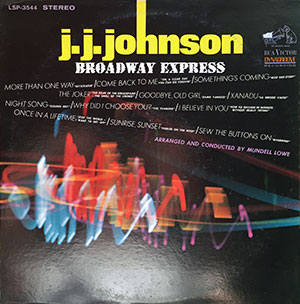In 1956, Coleman Hawkins was interviewed by Bill Grauer and Paul Bacon for Riverside Records. At one point, Hawkins recalls a period — about April, 1928, it turns out — that he played at the Roseland Ballroom with Jimmy Harrison, a trombonist and fellow member of Fletcher Henderson’s band. Hawkins and Jimmy already shared a kidding, bantering friendship, and soon, the arrival of Jack Tegarden at the Roseland would give Hawkins another thing to tease Harrison about:
Below is a transcription of this portion of the Hawkin’s interview done by writer Richard Hadlock in the 60s. Hadlock tries to contain some of Coleman’s valuable digressions, but it’s mostly accurate. I recommend listening, of course.
“I’d heard about this Teagarden . . . Jimmy and all the rest of them were downstairs, or I don’t even know if they were in yet. I heard him playin’, so I went downstairs to get Jimmy and the fellows to start kidding about it. I says, “Man, there’s a boy upstairs that plays an awful lot of trombone.” “Yeah, who’s that, Hawk?” I says, “He’s a boy from New Orleans or Texas or somethin. I don’t know. What do they call him? Jack Teagarden or somethin’. Jimmy do you know him?” “No, I’m not gonna know him . . . trombone player, ain’t he? Plays like the rest of the trombones, that’s all. I don’t see no trombones. I say the trombone is a brass instrument; it should have a sound just like a trumpet. I don’t want to hear trombone sound like a trombone. I can’t see it. I said, “Jimmy, he doesn’t sound like those trombones. He plays up high; sounds a lot like a trumpet, too.” He says, “Oh, man, I ain’t paying no mind.” Jimmy and Jack got to be the tightest of friends. After this night, I couldn’t separate Jimmy and Jack Teagarden. So we used to come up to my house practically every night . . . I don’t know how they made it, because we’d sit up there and fool around ‘til two, three, four o’clock in the afternoon–no sleep. And we were working every night. We used to go there and eat these cold cuts, cheese and crackers and stuff, and we’d do this and play–playin’ all night. Jimmy and Jack both jivin’ each other . . . trying to figure out what he lacks so he can get from the other one . . . and I dug what was going on . . . I had the piano, and they could play all night. It didn’t disturb anybody or nothin’. The house was all draped and carpeted . . . Both of them got their trombones, and I played piano for them. This used to go on all night long, listening to records and eating and talking and back to playing again–every night. You couldn’t keep Jack out of Harlem . . . He made every rent party . . . Jack made himself right at home. And always had that horn. He must have never slept, playing horn night and day. But that was a funny experience when Jack came up, ‘cause Jimmy never heard anyone play trombone like that.”


